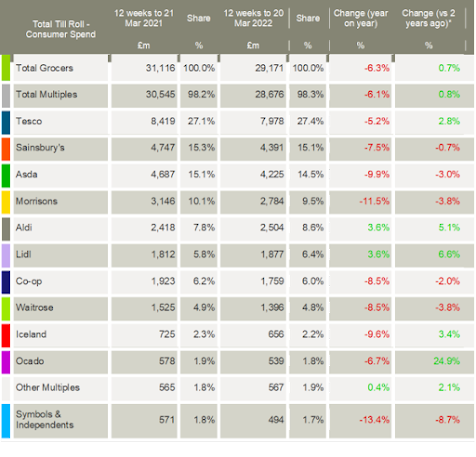Alongside its standard online grocery operation, the supermarket sells its products via Deliveroo, Uber Eats and its own Chop Chop service.
However, Sainsbury’s Chief Executive Simon Roberts revealed yesterday that on-demand doesn’t generate major sales volumes.
He said: “It’s built through the course of the year but in total terms, the size of our on-demand business is a bit more than the equivalent of two of our supermarkets.”
However, Sainsbury’s is now facing competition from a raft of start-ups, including Jiffy, Getir, Gorillas, GoPuff, and Zapp that vying to win on-demand spend by offering deliveries within minutes of ordering.
This has prompted traditional supermarket groups to rethink their business models and team up with the rapid delivery providers.
Roberts said Sainsbury’s was waiting to see how growth progresses in on-demand as consumer shopping behaviour starts to normalise as Covid concerns ease.
However, he insisted he was pleased with how Sainsbury’s own Chop Chop delivery service was performing. “It’s a good way of using our convenience stores to fulfil those missions,” he said.
NamNews Implications:
- Nonetheless, Sainsbury’s have feet under the on-demand delivery table…
- With their own Chop Chop service to gain hands-on sharp-end experience.
- Whilst outsourcing cost via Deliveroo and Uber Eats as pace-setters.
- This combination of delivery options will provide Sainsbury’s with real insights that can optimise potential…
- One to watch and even get on board.







